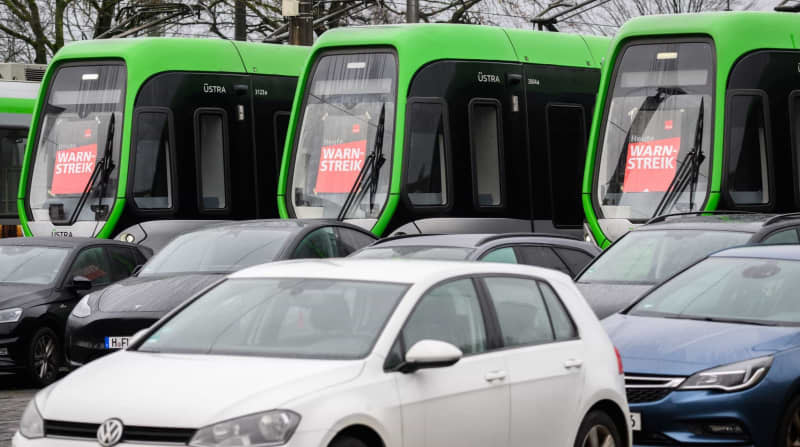Fresh public transport strikes to hit Germany next week

German local public transport workers plan to strike next week in every part of the country except the southern state of Bavaria, the trade union verdi announced on Thursday.
Public transport workers have staged several strikes in recent weeks amid tense collective bargaining talks with nearly all public transit agencies in the country.
Staff in Bavaria are also part of the negotiations but remain under contract and cannot take part in the strikes.
The upcoming strikes are planned for different days next week in different locations, although verdi said that March 1 will be the main strike day.
The climate activist group Fridays for Future announced it plans to stage demonstrations on March 1 as well, demanding more aggressive action on climate change and greater investment in public transit.
Germany has been hit recently by repeated strikes in the transport sector.
Train drivers at the national railway Deutsche Bahn staged a nationwide strike in late January as part of a separate ongoing dispute with the railway over working hours and wage demands.
Airport security and ground staff have also held several work stoppages at many of the country's largest airports.
Verdi deputy chairwoman Christine Behle said that "in order to finally get the negotiations moving, renewed pressure must now be exerted on the employers."
"That is why we are calling on employees to take concerted strike action," Behle said.
Verdi's demands revolve primarily around working conditions for employees, including shorter working hours, longer rest periods between shifts and more holidays.
The union has argued that the changes are necessary to make the transit agencies more attractive to potential workers and ease staffing shortages, which have affected operations for many systems across the country.
Bus drivers are currently in particularly short supply. In Berlin, for example, bus service has been running on a restricted timetable for months due to a lack of qualified drivers.
But in some German states, particularly in the former East Germany where salaries have continued to lag behind those in the former West Germany, workers are also demanding substantial wage increases.

